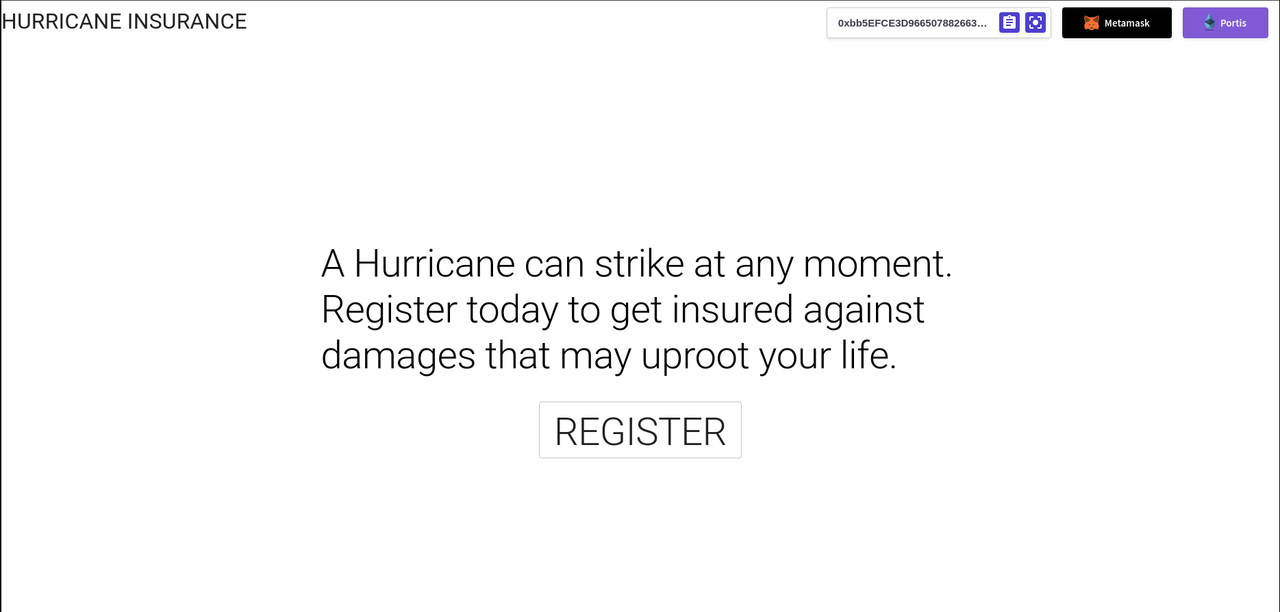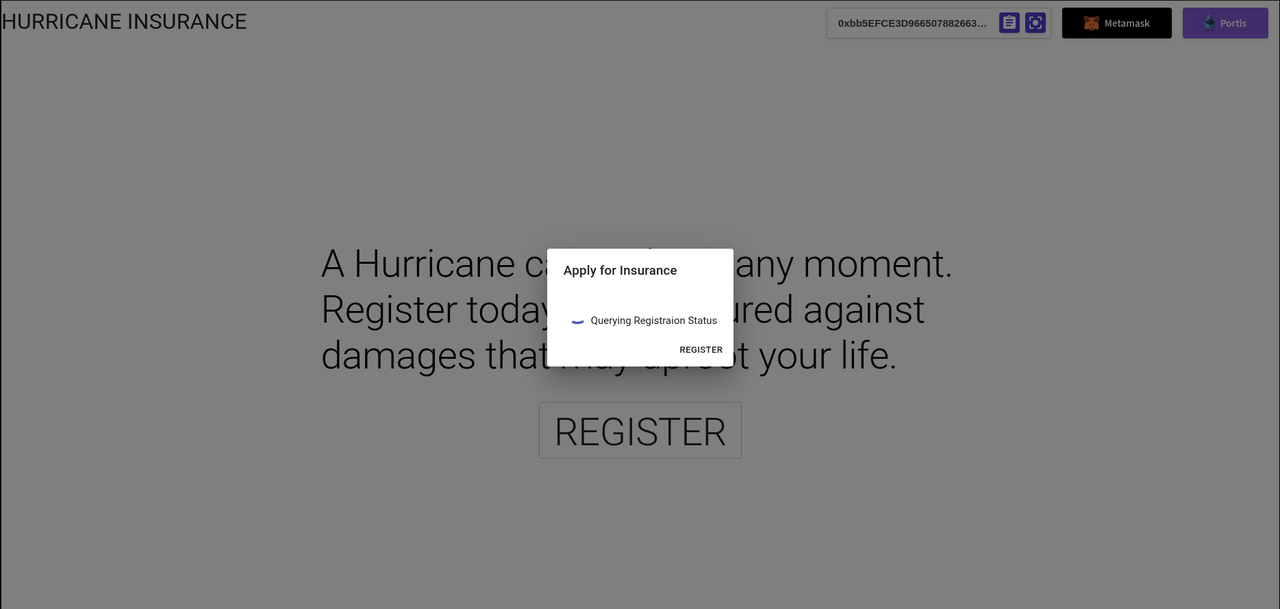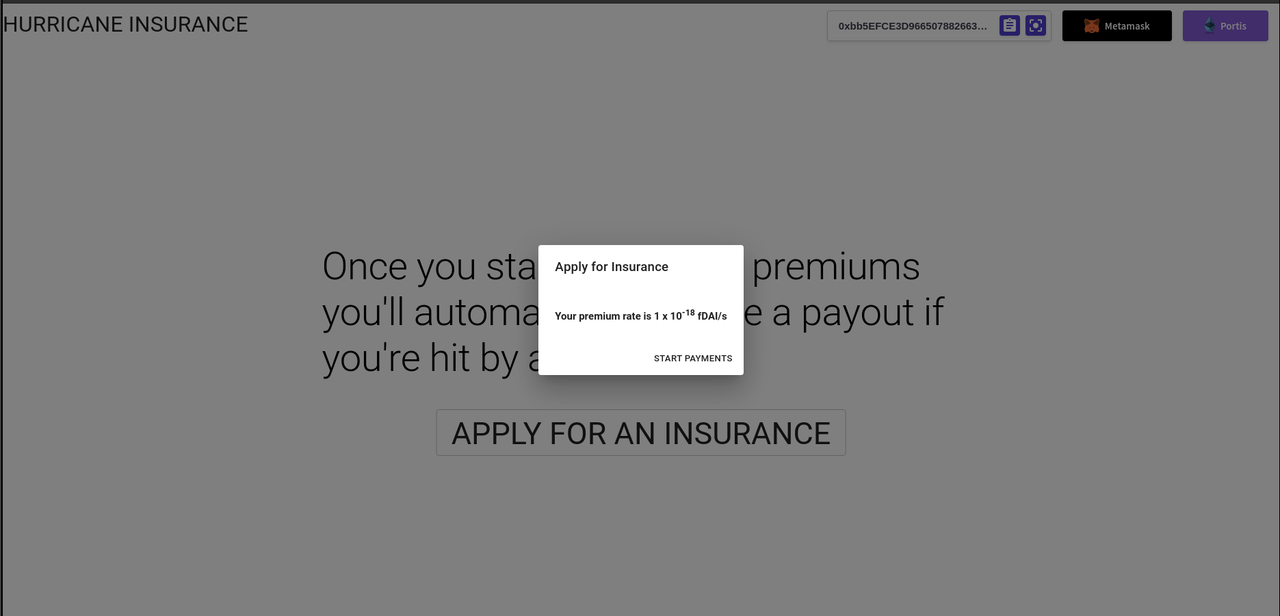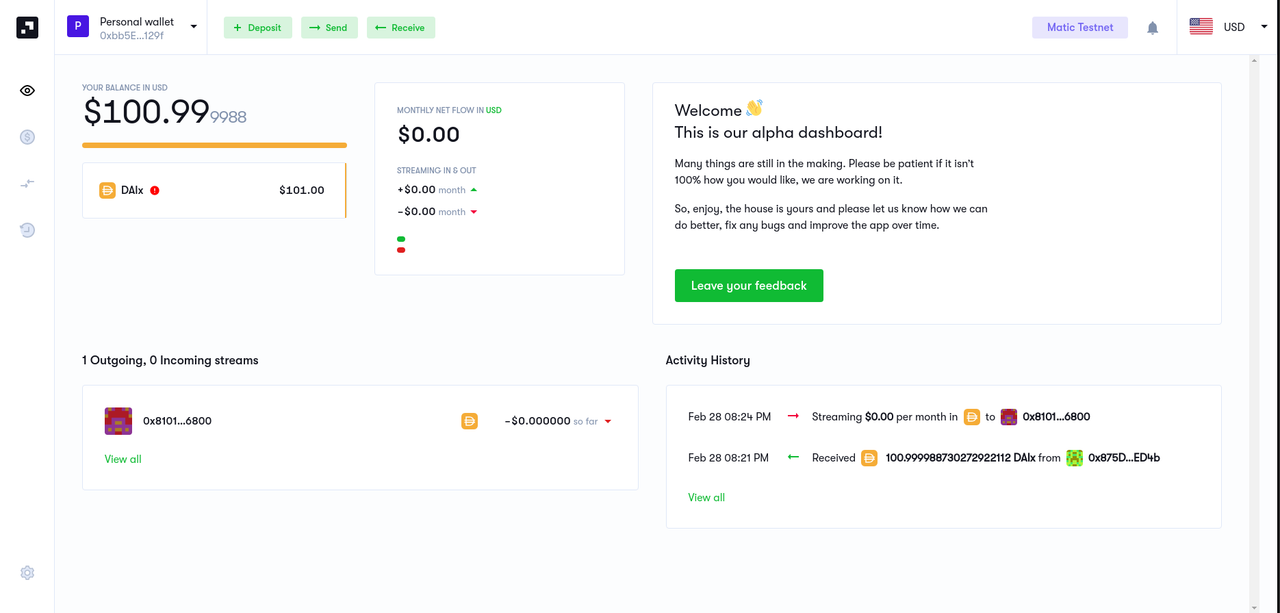HurriCARE
A decentralized insurance platform where you pay premium based on your location, and get super-fast guaranteed relief fund when you are hit by a cyclone or a hurricane.
Created on 28th February 2021
•
HurriCARE
A decentralized insurance platform where you pay premium based on your location, and get super-fast guaranteed relief fund when you are hit by a cyclone or a hurricane.
The problem HurriCARE solves
🚀 Motivation:
With global warming and subsequent changes in climate cyclones and hurricanes wreck city and village life all around the world and cost millions of dollars every year. It is not merely the coasts that bear the burnt of the storms, but miles of village and city life on plains too get wiped out. Cyclone-hit victims suffer from loss of livelihood, a roof over their heads as well as food shortage and asset loss. In the current disaster management system, most relief funds come from the govt, NGOs and are not paid instantly, and are subjected to scrutiny and verification by various centralized sources. A decentralized insurance system makes sure every user gets paid instantly as and when a cyclone strikes without needing centralized companies to verify premium payments and payout conditions.
✍️ What we Provide:
-
Apply for insurance against cyclones and hurricanes through our app using your permanent location.
-
Connect your MetaMask/ Portis wallet to our site
-
The Chainlink oracles connected to the OpenWeatherAPI fetch the climate conditions of your permanent location and decide the premium amount
-
SuperFluid starts streaming premium amount to us from your wallet
-
To opt out, you can stop the stream
-
Chainlink Alarm Clock schedules weekly checks to check if you are eligible for a payout
-
Chainlink oracles fetch the current weather conditions for each active user
-
A fixed amount in DAI is paid to the users eligible.
Register and Apply for Insurance
Premium is paid by user location
Check premium payment status on SuperFluid
Challenges we ran into
Our knowledge of DeFi being a little over a week old, we struggled to understand a lot of the concepts and architecture of the protocols as well as following docs religiously and implementing them. Further, we tested our contracts on the testnets, but while switching networks we realized that a lot of features were not cross-network, such as the Chainlink Alarm Clock oracle on Matic. Also since our application is heavily dependent on current weather conditions, it was difficult to test and demo our application, and we had to simulate using scripts to test out our contracts.
Cheer Project
Cheering for a project means supporting a project you like with as little as 0.0025 ETH. Right now, you can Cheer using ETH on Arbitrum, Optimism and Base.



